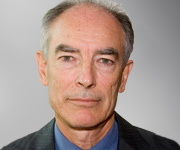THE recent serious injury of a mother pushing her child in a stroller after she was struck by a car driven by an 88-year-old man has led to a call for mandatory reporting by doctors of elderly patients with medical conditions that could affect their ability to drive.
Many factors other than health can affect the risk of causing a serious crash, including blood alcohol levels, gender, day of the week, sleep deprivation, old age and, especially, young age — as well as a range of medical conditions.
In Australia, we accept that legally licensed drivers carry widely varying risks of a crash. National standards of fitness to drive, a revised edition of which is due for imminent release, aim to balance individual freedom with community safety and minimise harm.
However, when a fatal crash (or, as in this case, a serious crash involving a politician’s family) occurs as a result of a medical condition, rather than this being seen as an inevitable though tragic consequence of such standards, there is often a call for mandatory reporting by doctors of people with that condition.
This occurred several years ago in Queensland after a fatal crash caused by a driver with epilepsy. Fortunately on that occasion, the Queensland Government did not impose mandatory reporting by doctors but sensibly introduced a legal obligation on the drivers themselves to report any relevant health problem to the licensing authority (Jet’s Law).
Such legislation was already in force in the rest of Australia. Unfortunately, governments have done little to make drivers aware of it.
There is also legal indemnity for people (not only doctors) who report unsafe drivers in good faith. Mandatory reporting by doctors already exists in SA and the NT. Anecdotally, compliance is inconsistent.
While superficially attractive, mandatory reporting may actually be counterproductive to road safety. Importantly, it has the potential to damage the doctor-patient relationship — the doctor may be seen as the person responsible for the patient’s loss of independence, freedom and employment.
There is also the danger that if the patient knows their doctor is legally obliged to report relevant conditions, they may conceal symptoms such as a recent blackout, resulting in suboptimal care and, ultimately, a further increase in crash risk.
For these reasons, the AMA, the Australian and New Zealand Association of Neurologists and the Epilepsy Society of Australia are opposed to mandatory reporting.
Associate Professor Ernest Somerville is a Sydney neurologist and chair of the Australian and New Zealand Association of Neurologists’ driving committee.
Posted 11 July 2011

 more_vert
more_vert
The increasing difficulty in our rapidly-ageing world is how to manage the older person with memory/cognitive/perceptual issues arising in relationship to dementia. Many of these good people simply are unaware that they are not driving safely, until they have an accident, and so are in no position to realise there is any problem to report. Introducing an on-road check of driving competence skills for people aged 85 and older, in NSW at least, allows the opportunity for these problems to be picked up by the licensing authority, without damaging the doctor-patient relationship, which is even more important in old age, than earlier in life.
In an ideal world and certainly within an occupational, health and safety setting, it is essential to mitigate a risk potential if it can’t be removed altogether.
It behoves all doctors who have patients with a potential chance to cause injury to themselves and/or third parties, whilst in control of a vehicle or machinery, to encourage them not to drive.
As for reporting the issue to the RTA, this is a vexed question, but if the condition is serious enough and by reporting to the authority it saves just one life or serious injury, it should be made mandatory.
I completely agree with this.